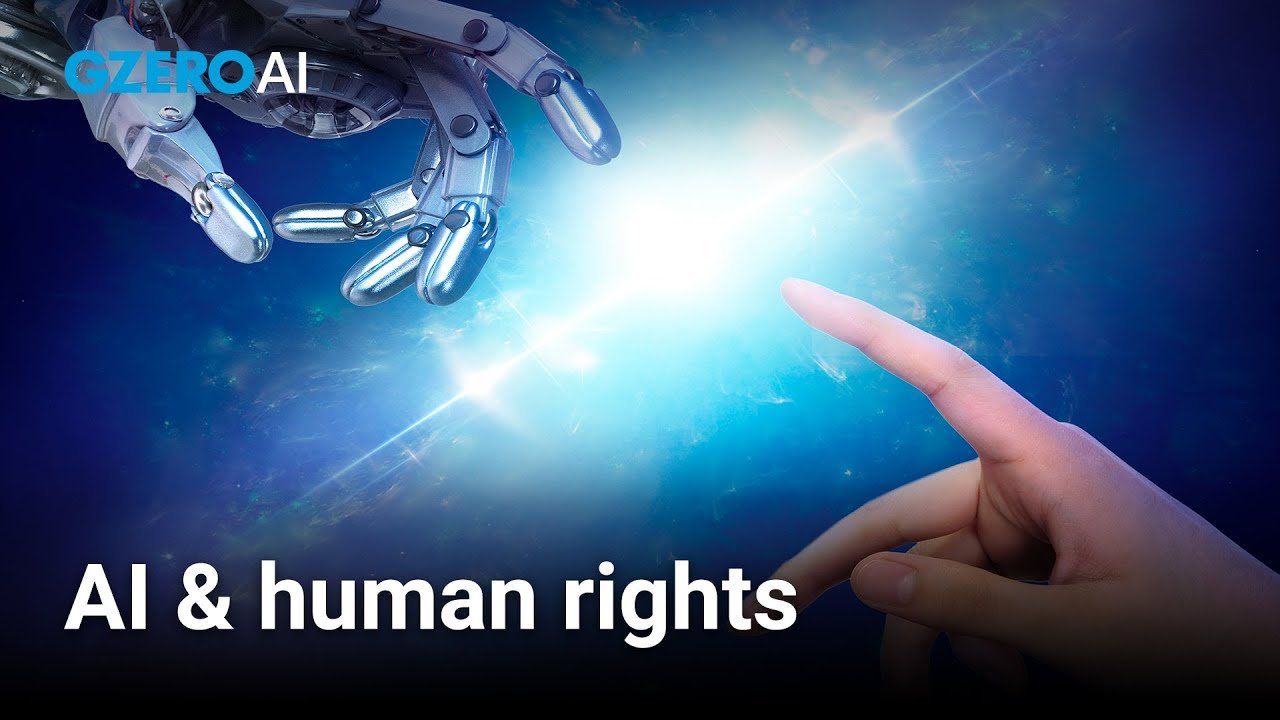GZERO AI Video
AI & human rights: Bridging a huge divide

AI & human rights: Bridging a huge divide | Marietje Schaake | GZERO AI

Marietje Schaake, International Policy Fellow, Stanford Human-Centered Artificial Intelligence, and former European Parliamentarian, reflects on the missing connection between human rights and AI as she prepares for her keynote at the Human Rights in AI conference at the Mila Quebec Institute for Artificial Intelligence. GZERO AI is our weekly video series intended to help you keep up and make sense of the latest news on the AI revolution.
I'm in the hallway of the Mila Quebec Institute for Artificial Intelligence, where there's a conference that deals with human rights and artificial intelligence. And I'm really happy that we focus on this uniquely today and also tomorrow, because too often the thoughts about, the analysis of and the agenda for human rights in the context of AI governance is an afterthought.
And so it's great to hear the various ways in which human rights are at stake, from facial recognition systems to, you know, making sure that there is representation in governance from marginalized communities, for example. But what I still think is missing is a deeper connection between those people who speak AI, if you will, and those people who speak human rights. Because still the worlds of policy and politics and the worlds of artificial intelligence, and within those, the people who care about human rights tend to speak in parallel universes. And so what I'll try to do in my closing keynote today is to bring people's minds to a concrete, positive political agenda for change in thinking about how we can frame human rights for a broader audience, making sure that we use the tools that are there, the laws that apply both international and national and doubling down on enforcement. Because so often the seeds for meaningful change are already in the laws, but they're not forceful in the way that they are being held to account.
And so we have a lot of work ahead of us. But I think the conference was a good start. And I'll be curious to see the different tone and the focus on geopolitics as I go to the Munich Security Conference with lots of the GZERO team as well.
1,170: The number of high-rise buildings in Kyiv that were left without heating following a barrage of Russian attacks last night on Ukraine’s capital and its energy facilities, per Kyiv Mayor Vitali Klitschko.
U.S. President Donald Trump and Japanese Prime Minister Sanae Takaichi hold up signed documents regarding securing the supply of critical minerals and rare earths, at a bilateral meeting at Akasaka Palace in Tokyo, Japan, October 28, 2025.
Representatives from the European Union, United Kingdom, Japan, and others will meet in Washington this week to discuss a strategic alliance on critical minerals.
80,000: The number of people estimated to be in the streets of Czechia on Sunday to show their support for President Petr Pavel after he blocked the nomination of an environmental minister who performed the Nazi salute and posted Nazi memorabilia.
The US has started handing $1,000 to the bank accounts of newborn babies. But can policies like this one help boost sagging birthrates in advanced democracies?